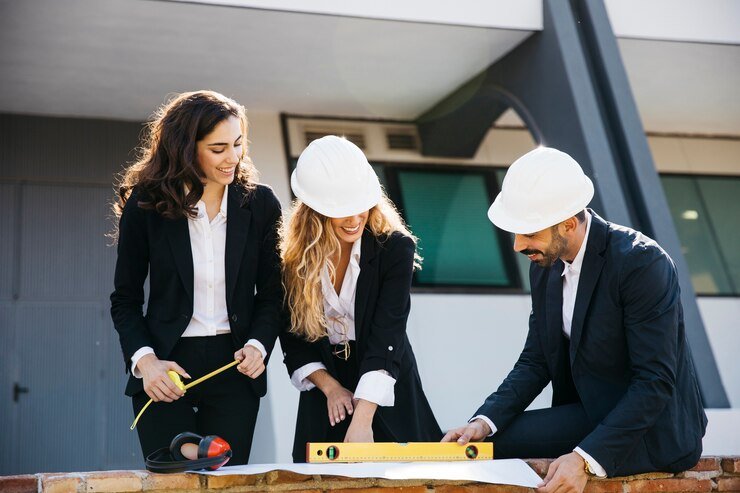
Stichting Bouwresearch
Stichting Bouwresearch is a pivotal organization in the construction sector, dedicated to advancing knowledge and innovation. Founded with a mission to enhance the quality and sustainability of construction practices, it plays a crucial role in shaping industry standards.
As the construction landscape evolves, Stichting Bouwresearch addresses emerging challenges and opportunities. Through cutting-edge research and strategic collaborations, it fosters sustainable solutions that benefit both the industry and society.
In this article, we will explore the organization’s history, key objectives, and significant contributions. Discover how Stichting Bouwresearch influences the future of construction and how you can engage with its initiatives. Read on to learn more about this vital institution.
Historical Context and Evolution
Stichting Bouwresearch was established in response to the growing need for research and innovation within the Dutch construction industry. Its origins trace back to a period when traditional methods faced increasing pressure to adapt to modern challenges, including sustainability and efficiency.

Initially, the organization focused on bridging the gap between academic research and practical application. It aimed to provide the construction sector with scientific insights that could enhance building practices and methodologies. Over the years, Stichting Bouwresearch evolved its approach to include collaboration with various stakeholders, including universities, industry professionals, and government bodies.
As the industry changed, so did the organization’s priorities. New technological advancements and environmental considerations reshaped its research agenda. By integrating these elements, Stichting Bouwresearch positioned itself as a leader in promoting sustainable practices and innovative solutions.
Today, the organization continues to adapt, responding to emerging trends and challenges in construction. Its commitment to enhancing industry standards and practices remains steadfast, making it a cornerstone of construction research in the Netherlands. Through its initiatives, Stichting Bouwresearch aims to foster a more efficient and sustainable future for the entire construction sector.
If you found this article helpful, click here for more.
Mission, Vision, and Core Objectives
Stichting Bouwresearch is driven by a clear mission: to enhance the quality, efficiency, and sustainability of the construction industry through research and innovation. The organization aims to bridge the gap between academic insights and practical applications, ensuring that findings translate into real-world benefits for construction professionals.
At the heart of its vision is a commitment to promoting sustainable development in the built environment. This includes addressing environmental concerns, improving resource management, and fostering resilience in construction practices. The organization recognizes the role of research in creating solutions that meet both current and future needs.
Key objectives of Stichting Bouwresearch include:
- Promoting Innovation: The organization seeks to support innovative practices in construction through research that identifies new materials, techniques, and technologies.
- Enhancing Education and Training: Stichting Bouwresearch prioritizes educational initiatives that equip industry professionals with the skills needed to implement best practices and emerging trends.
- Fostering Collaboration: By working alongside universities, government agencies, and industry partners, the organization encourages a collaborative approach to research that benefits all stakeholders in the construction sector.
- Supporting Policy Development: The organization aims to influence construction policies by providing evidence-based recommendations that enhance industry standards and regulatory frameworks.
Through these objectives, Stichting Bouwresearch strives to be a leading force in shaping a sustainable future for the construction industry, contributing to both economic and social development. Its dedication to research and innovation positions it as a vital player in advancing construction practices in the Netherlands and beyond.
Key Contributions and Innovations
Stichting Bouwresearch has made significant strides in advancing the construction industry through its research initiatives and innovative practices. The organization focuses on various areas that address the pressing challenges faced by the sector today.
1. Research in Sustainable Construction:
One of the primary contributions is its emphasis on sustainability. By conducting studies on energy-efficient materials and construction methods, Stichting Bouwresearch promotes practices that reduce environmental impact. This includes research on green building certifications and lifecycle assessments that help industry professionals make informed decisions.
2. Technological Advancements:
The organization is at the forefront of integrating technology into construction processes. Research initiatives explore the application of digital tools, such as Building Information Modeling (BIM) and smart construction techniques. These advancements enhance project management, improve collaboration among stakeholders, and lead to more efficient workflows.
3. Development of Educational Programs:
Stichting Bouwresearch is committed to enhancing the skill set of construction professionals. By creating training programs and workshops, it ensures that practitioners are updated on the latest industry standards and innovations. This focus on education empowers individuals to implement best practices in their projects.
4. Collaboration with Industry Partners:
The organization actively collaborates with universities, governmental bodies, and industry leaders to promote research that addresses real-world challenges. These partnerships enable the sharing of knowledge and resources, resulting in innovative solutions tailored to the needs of the construction sector.
5. Policy Influence and Standards Development:
Through its research findings, Stichting Bouwresearch contributes to the formulation of industry standards and policies. By providing evidence-based recommendations, it plays a significant role in shaping regulations that govern construction practices in the Netherlands.
Overall, Stichting Bouwresearch’s contributions and innovations not only enhance the quality and efficiency of construction but also foster a culture of sustainability and collaboration within the industry. Its ongoing efforts continue to set benchmarks for excellence in construction research and practice.
Impact on the Dutch Construction Industry
Stichting Bouwresearch has had a profound influence on the Dutch construction industry, shaping practices and policies through its dedicated research and innovative initiatives. Its efforts are reflected in various areas that enhance the overall landscape of construction in the Netherlands.
1. Advancing Sustainable Practices:
By prioritizing sustainability, Stichting Bouwresearch has promoted environmentally friendly construction methods. Research findings have led to increased awareness and adoption of green building practices, encouraging developers to minimize waste and reduce carbon footprints. This shift not only benefits the environment but also aligns with national and global sustainability goals.
2. Enhancing Quality Standards:
The organization plays a key role in developing and maintaining quality standards within the industry. Its research informs the creation of benchmarks for materials and construction techniques, helping to raise the overall quality of projects. This emphasis on quality fosters trust among clients and stakeholders.
If you found this article helpful, click here for more.
3. Facilitating Technological Integration:
Stichting Bouwresearch supports the adoption of innovative technologies within the construction sector. By promoting tools such as BIM and automation, the organization has improved project efficiency and accuracy. This technological integration allows for better planning, coordination, and execution of construction projects.
4. Influencing Policy and Regulation:
Through its research, Stichting Bouwresearch contributes to policy discussions at various governmental levels. The organization provides data and recommendations that inform regulations affecting the construction industry. This involvement helps create a regulatory environment that encourages innovation and sustainability.
5. Strengthening Collaboration Across Sectors:
The organization fosters collaboration between academia, industry, and government. By bringing together different stakeholders, Stichting Bouwresearch facilitates knowledge sharing and the development of solutions that address common challenges. This collaborative approach has led to significant advancements in construction practices.
Overall, Stichting Bouwresearch’s impact on the Dutch construction industry is multifaceted, promoting sustainability, quality, and innovation. Its ongoing commitment to research and collaboration continues to drive positive change, shaping a more efficient and responsible construction sector.
Collaborations and Partnerships
Stichting Bouwresearch actively engages in collaborations and partnerships that enhance its research capabilities and extend its influence within the construction industry. These relationships are essential for fostering innovation and addressing the complex challenges faced by the sector.
1. Academic Collaborations:
Partnerships with universities and research institutions are a cornerstone of Stichting Bouwresearch’s approach. By working alongside academic experts, the organization gains access to cutting-edge research and methodologies. This collaboration not only enriches its projects but also facilitates the transfer of knowledge to students and professionals in the field.
2. Industry Alliances:
Stichting Bouwresearch collaborates with various industry stakeholders, including construction companies, suppliers, and trade associations. These alliances allow for the sharing of best practices and experiences, helping to bridge the gap between theory and practical application. Such cooperation is vital for promoting innovative solutions and improving industry standards.
3. Government Partnerships:
Engaging with governmental bodies is another critical aspect of Stichting Bouwresearch’s strategy. By contributing research findings to policy discussions, the organization helps shape regulations that govern the construction sector. This interaction ensures that policies are informed by the latest research and reflect the realities of the industry.
4. International Collaborations:
Stichting Bouwresearch also seeks partnerships beyond national borders. By connecting with international organizations, it broadens its perspective and gains insights from global best practices. These collaborations facilitate the exchange of ideas and innovations that can be adapted to the Dutch context.
5. Community Engagement:
The organization actively involves local communities and stakeholders in its research initiatives. By understanding the needs and concerns of those affected by construction projects, Stichting Bouwresearch can develop solutions that are socially responsible and beneficial to all parties involved.
Through these collaborations and partnerships, Stichting Bouwresearch enhances its research efforts and drives positive change in the construction industry. These relationships foster a culture of innovation, knowledge sharing, and community engagement, contributing to a more sustainable and effective construction sector.
Sustainability Initiatives and Environmental Impact
Stichting Bouwresearch is committed to promoting sustainability within the construction industry, recognizing the importance of minimizing environmental impact. Its initiatives focus on developing and implementing practices that contribute to a greener future.

1. Research on Sustainable Materials:
The organization conducts extensive research into eco-friendly materials, assessing their performance and feasibility for various construction projects. By identifying alternatives to traditional materials, Stichting Bouwresearch supports the adoption of options that reduce resource consumption and waste.
2. Energy Efficiency Studies:
Stichting Bouwresearch evaluates energy-efficient building techniques and technologies. This research aims to lower energy consumption in both new constructions and renovations. By promoting methods such as passive solar design and high-performance insulation, the organization helps builders create structures that require less energy for heating and cooling.
3. Life Cycle Assessments (LCAs):
The organization employs life cycle assessments to evaluate the environmental impact of construction projects from start to finish. This approach allows stakeholders to understand the long-term effects of their choices, guiding them toward more sustainable practices throughout the project lifecycle.
4. Guidelines for Sustainable Construction Practices:
Stichting Bouwresearch develops guidelines and best practices for sustainable construction. These resources provide industry professionals with actionable steps to implement eco-friendly practices, promoting a culture of sustainability across the sector.
5. Collaboration on Environmental Projects:
By partnering with environmental organizations and governmental bodies, Stichting Bouwresearch participates in initiatives aimed at enhancing sustainability. These collaborations help raise awareness about environmental issues in construction and create frameworks for implementing sustainable solutions.
6. Education and Training Programs:
The organization offers educational programs focused on sustainability in construction. These training sessions equip industry professionals with the knowledge and skills necessary to adopt sustainable practices effectively.
Through these initiatives, Stichting Bouwresearch plays a pivotal role in shaping a more sustainable construction industry. Its commitment to research and education fosters an environment where eco-friendly practices can thrive, ultimately benefiting both the industry and the planet.
If you found this article helpful, click here for more.
Challenges in the Construction Industry
The construction industry faces a variety of challenges that impact its efficiency and sustainability. Stichting Bouwresearch actively addresses these issues through research and innovative solutions.
1. Resource Management:
The sector often grapples with the efficient use of materials and resources. Waste generation during construction and demolition can be significant, leading to environmental concerns. Effective resource management strategies are essential to minimize waste and optimize material use.
2. Labor Shortages:
A persistent challenge is the shortage of skilled labor. As experienced professionals retire, the industry struggles to attract and retain new talent. This gap can hinder project timelines and the implementation of modern practices.
3. Regulatory Compliance:
Navigating the complex landscape of regulations and standards can be burdensome for construction firms. Changes in laws related to safety, sustainability, and building codes require continuous adaptation. Organizations like Stichting Bouwresearch provide essential research to help industry players stay informed and compliant.
4. Technological Integration:
While technology offers numerous benefits, the adoption of new tools and methods can be slow. Some companies may resist change due to the costs or complexities associated with implementing advanced technologies like BIM or automation. Education and training initiatives can play a crucial role in overcoming these barriers.
5. Environmental Impact:
The construction sector is a significant contributor to greenhouse gas emissions and environmental degradation. Addressing these impacts is critical as global focus on sustainability intensifies. Research into more sustainable practices and materials is essential for reducing the industry’s ecological footprint.
6. Economic Fluctuations:
Economic uncertainty can lead to fluctuations in project funding and demand for construction services. This volatility can affect long-term planning and investment in innovation. Organizations like Stichting Bouwresearch must adapt their strategies to remain relevant during changing economic conditions.
By identifying and addressing these challenges, Stichting Bouwresearch plays a key role in supporting the construction industry. Its research and initiatives aim to provide solutions that promote efficiency, sustainability, and resilience in the face of evolving demands.
Future Outlook and Upcoming Projects
Stichting Bouwresearch is focused on anticipating the evolving needs of the construction industry. As challenges and opportunities arise, the organization aims to remain at the forefront of innovation and research.

1. Emphasis on Digital Transformation:
The future of construction heavily leans toward digitalization. Stichting Bouwresearch plans to expand its research on the integration of digital tools and technologies. This includes exploring advancements in automation, artificial intelligence, and data analytics to enhance project efficiency and decision-making.
2. Increased Focus on Circular Construction:
With growing concerns about sustainability, the organization is prioritizing research into circular construction practices. This approach promotes the reuse and recycling of materials, aiming to minimize waste and reduce environmental impact. Upcoming projects will investigate best practices for implementing circular principles in various construction contexts.
If you found this article helpful, click here for more.
3. Expanding Educational Initiatives:
Recognizing the importance of knowledge transfer, Stichting Bouwresearch intends to enhance its educational offerings. New training programs will be developed to address emerging trends and technologies, equipping professionals with the necessary skills to adapt to a changing industry.
4. Collaborations for Innovation:
The organization plans to strengthen partnerships with academic institutions, industry leaders, and governmental bodies. Collaborative projects will focus on tackling specific challenges such as energy efficiency, sustainable urban development, and climate resilience in construction.
5. Research on Policy and Regulation:
As the regulatory landscape evolves, Stichting Bouwresearch will conduct studies that inform policymakers about effective construction practices. This research will aim to support the development of regulations that encourage innovation while ensuring safety and sustainability.
6. Global Perspectives:
Looking beyond national borders, Stichting Bouwresearch will engage in international collaborations to learn from global best practices. This approach will help incorporate diverse insights and strategies into its research and initiatives, fostering a more robust construction sector.
By focusing on these areas, Stichting Bouwresearch is well-positioned to drive positive change in the construction industry. Its commitment to innovation and sustainability will play a key role in shaping the future of construction, promoting practices that are both effective and responsible.
If you found this article helpful, click here for more.
Conclusion
Stichting Bouwresearch stands as a pivotal force in the construction industry, dedicated to advancing knowledge, sustainability, and innovation. Through its extensive research initiatives, educational programs, and strategic collaborations, the organization addresses critical challenges while fostering a culture of continuous improvement. As the industry evolves, Stichting Bouwresearch remains committed to shaping a future that prioritizes eco-friendly practices and technological integration. By promoting sustainable solutions and providing valuable insights, it plays a vital role in building a more resilient and responsible construction sector for the Netherlands and beyond.
Frequently Asked Questions (FAQs)
1. What is Stichting Bouwresearch?
Stichting Bouwresearch is a research organization focused on improving the construction industry through innovation, sustainability, and collaboration. It conducts studies, develops educational programs, and partners with various stakeholders to enhance practices and address industry challenges.
2. How does Stichting Bouwresearch promote sustainability in construction?
The organization promotes sustainability by researching eco-friendly materials, energy-efficient techniques, and circular construction practices. It also develops guidelines and training programs that encourage industry professionals to adopt sustainable methods.
3. What types of collaborations does Stichting Bouwresearch engage in?
Stichting Bouwresearch collaborates with universities, industry professionals, government agencies, and international organizations. These partnerships facilitate knowledge sharing and help address specific challenges within the construction sector.
4. How can professionals get involved with Stichting Bouwresearch?
Industry professionals can participate in Stichting Bouwresearch’s educational programs, workshops, and research initiatives. Additionally, they can engage in collaborative projects or contribute their insights to ongoing studies and discussions on construction practices.




